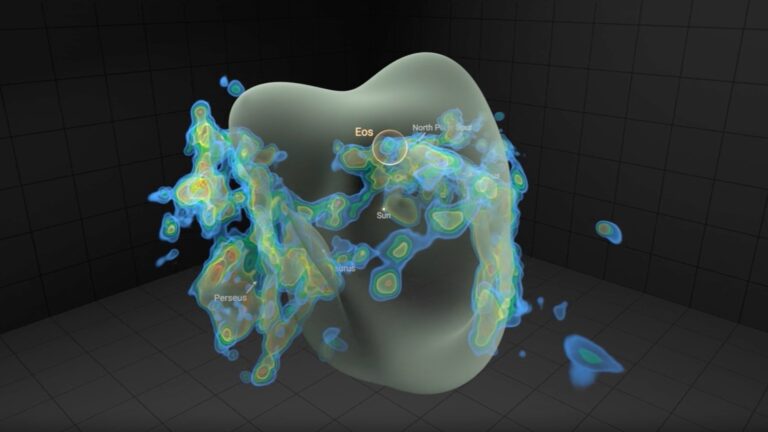Dark Matter May Be Older Than the Universe—And It Might Live Forever – The Daily Galaxy
2025-04-23T16:30:00Z
Is dark matter the key to unlocking the universe’s deepest mysteries? New research hints that this invisible force might be older than the universe and could live forever.
Dark matter, the invisible substance that makes up a significant portion of the universe, continues to puzzle scientists. For years, we’ve known it exists due to its gravitational effects on stars and galaxies, but its true nature remains elusive.
Now, a groundbreaking study suggests that dark matter might be older than the universe itself. Published in the Journal of Cosmology and Astroparticle Physics, the study challenges our understanding of the cosmos, proposing that this mysterious substance could have existed even before the Big Bang and may be immortal.
What Is Dark Matter?
Dark matter is a mysterious and invisible substance that makes up about 27% of the universe. Though we cannot see it directly, scientists know it exists because of the gravitational effects it has on visible matter, such as stars and galaxies.
Without dark matter, galaxies would not have the structure and rotation speeds that we observe. Despite being crucial to our cosmic understanding, dark matter does not emit, absorb, or reflect light, making it invisible to all current instruments.
While some scientists believe dark matter might consist of weakly interacting massive particles (WIMPs), others suggest it could be composed of axions, sterile neutrinos, or other theoretical particles.
Dark Matter Predates the Universe?
A team of cosmologists and physicists recently conducted a study that explores the origin and potential immortality of dark matter. The research, which was published in the Journal of Cosmology and Astroparticle Physics, proposes that dark matter could have existed even before the formation of the universe as we know it.
According to the study, the substance might have emerged from processes that occurred in a pre-universe era, potentially leading to a different understanding of time and space itself.
The key takeaway from the study is the idea that dark matter may be immortal. Unlike regular matter, which decays over time, dark matter could remain stable for extremely long periods.
How Dark Matter Could Have Preceded the Universe
The idea that dark matter predates the universe is not a new concept, but recent research has added weight to the hypothesis. Cosmologists have long wondered about the nature of the universe before the Big Bang, and whether the laws of physics we observe today were in place at the beginning of time.
One theory suggests that dark matter could have originated in a state before the Big Bang, potentially existing in a “quantum soup“ of fundamental particles. The study proposes that dark matter may have been a central component of the universe’s formation, creating the gravitational fields that eventually led to the creation of galaxies and stars.
If dark matter existed before the Big Bang, it raises intriguing questions: What role did it play in the early universe? Could it have contributed to the conditions that sparked the Big Bang itself?
The Immortality of Dark Matter: A New Frontier in Physics
One of the most mind-bending aspects of the study is the suggestion that dark matter could be immortal. Unlike ordinary matter, which breaks down into smaller particles over time (such as radioactive decay), dark matter seems to remain stable and unchanged.
This stability has made it a candidate for theories regarding the ultimate fate of the universe. If dark matter is indeed immortal, it could potentially continue to exist long after the stars burn out and galaxies collide.
It might remain as the only detectable substance in the universe’s distant future, making it a cornerstone of any theories about the end of cosmic evolution.
Auto-posted from news source






